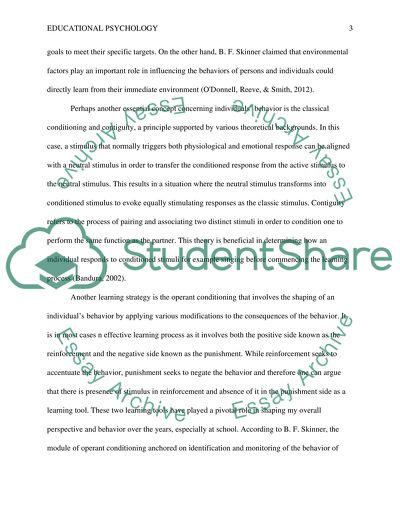Reflection Paper Research Example | Topics and Well Written Essays - 750 words - 1. Retrieved from https://studentshare.org/psychology/1481459-reflection-paper
Reflection Paper Research Example | Topics and Well Written Essays - 750 Words - 1. https://studentshare.org/psychology/1481459-reflection-paper.


